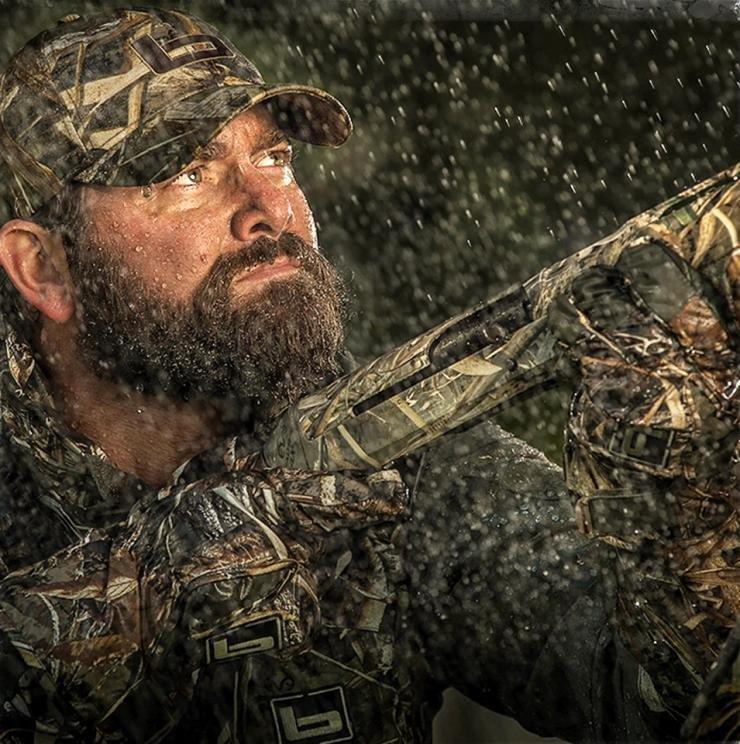
I’ve experienced some great days in the rain. I’ve also endured some awful rainy-day hunts. After a while, I began to realize that not all rainy, ducky days are the same. In fact, success in the rain often depends on many factors, including the ducks you’re hunting, the duration and intensity of the rain, and several other factors.
An old-timer told me years ago he’d hunt puddle ducks during a long, steady rain but would forget about divers during similar conditions. Generally, I think that’s good advice. Steady moderate to heavy rain seems to stifle diving duck movement more than puddler activity.
They key word, however, is steady. Puddlers and divers move like crazy immediately before and after periods of rain — even intense precipitation. I’ve seen seemingly dead lakes come alive with diver activity 10 minutes before thunderstorms or heavy downpours. Then, action wanes as the wet stuff arrives. Divers still move somewhat during the rain, of course, but the flight typically slows.
Puddlers, meanwhile, don’t seem to be quite as affected by steady rain. In fact, in some situations, such as field hunting, rain can increase your chances. During mild weather, ducks and geese often hit fields at first light, spend most of the day loafing on small waters and then feed again before going to roost. During a steady rain, they might spend all or most of the day in the field.
And consider this rarely mentioned tidbit: Some guides I know love hunting divers or puddlers during sunny days, when ducks can see decoys from long distances, but hate cloudy conditions unless it’s raining. Why? Rain, they say, obscures the vision of ducks so they can’t spot boats, hunters or other potential dangers. It’s an interesting theory.
Then you have those X-factors I mentioned. Wind tops the list, as a big breeze usually gets ducks moving during rainy or sunny days. Further, rain ahead of a major incoming cold front can trigger bird activity, as they sense the urge to feed or migrate, or fresh birds arrive with the new weather pattern.
If rain changes to snow, the debate ends: Get out there. Snow drives ducks crazy. Some of the greatest marsh, field and diver hunts I’ve experienced were associated with snowstorms — even prairie blizzards.
So, should you hunt in the rain? That’s really up to you. I always figure I’ll shoot more ducks during a steady rain than I would sitting at home. I don’t layout hunt during long, steady rains, because doing so is a form of torture similar to lying in a bathtub and turning on the shower — on its coldest setting. However, I’ll gladly brave intermittent showers or light, spitting rain.
My best advice is to watch the radar and get an idea of what the day holds. Then, weigh all the factors, and go with your best instinct. Do not hunt if thunderstorms are forecast. If it appears the rain will stop after a few hours, think about holding off and hunting later. If it looks like an all-day drencher, you’ll have to choose between getting wet or waiting for better days.
Really, with modern raingear, the only hassle associated with hunting in the rain is stripping and cleaning your gun afterward. Sure, that can be a pain. But it beats moping around while watching the weather forecast for the next day.








































